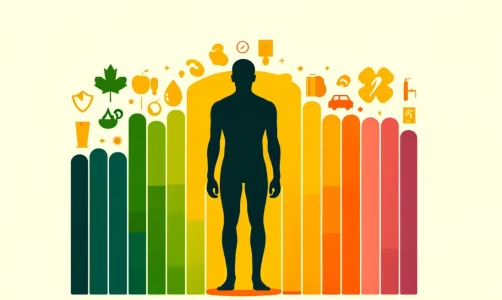
In the heart of Nigeria, the colour spectrum of your urine unfolds tales of your health and lifestyle choices. From Lagos's bustling streets to Calabar's serene landscapes, your body communicates through the hues of your urine. Here's a culturally tailored guide to deciphering what these colours reveal about your wellbeing.
Key highlights
- Hydration and Climate: Understanding the impact of Nigeria's tropical climate on hydration, reflected in urine colour, is crucial for maintaining health.
- Dietary Influence: Local Nigerian foods and supplements can alter urine colour, providing insights into dietary habits and nutritional intake.
- Lifestyle and Activity: Daily activities and exercise routines influence urine colour, highlighting the importance of hydration in an active lifestyle.
- Health and Environmental Factors: Unusual urine colours can signal health issues, necessitating awareness of how environmental factors and access to clean water affect health.
- Cultural and Seasonal Adaptations: Embracing Nigerian dietary traditions and adapting to seasonal changes are vital to managing health and lifestyle, as reflected in urine colour.
|
- The Sign of Hydration: Pale to Transparent Yellow
Proper hydration is fundamental, and your urine colour is a primary indicator. A pale straw hue signifies adequate water intake, which is crucial in our tropical climate. Conversely, the dark yellow indicates dehydration, a common risk in hotter regions, highlighting the importance of regular water consumption.
- Dietary Reflections: The Impact of Local Foods
Nigerian diets, rich in colourful fruits and vegetables like ugu and carrots, can tint your urine. For example, consuming beetroot, common in salads, may lead to pink or reddish urine, while the vibrant yellow of B vitamins found in local supplements can intensify urine's hue. These changes are harmless, reflecting the diversity of our diets.
- Active Lifestyles: Understanding Exercise's Role
Physical activity, whether playing football or commuting in busy cities, affects urine colour. Dark urine post-exercise might indicate dehydration or, in rare cases, muscle injury. A well-hydrated state reflects lighter urine, underscoring the importance of fluid intake with our active lifestyles.
- Lifestyle Indicators: Hydration Habits and Medication
Your urine colour can be influenced by your daily habits, including the type of water you drink and your medications. Frequent consumption of herbal remedies might also alter its appearance. Recognizing these signs can help adjust lifestyle choices for better health.
- Health Alerts: Unusual Colors and What They Mean
Changes in urine colour can signal health concerns. Cloudy urine may suggest a UTI, a condition not uncommon in our climate due to dehydration risks—red or pink urine warrants medical attention, as it could indicate blood. Rare colours like green or blue could arise from specific medications or conditions, reminding us of the importance of healthcare consultations.
- Environmental Factors: Heat and Hydration
Our warm climate increases the risk of dehydration, directly impacting urine colour. Understanding the need for increased fluid intake during hot weather is crucial for preventing kidney stones and other heat-related health issues.
- Cultural Practices: Traditional Diets and Health
Traditional Nigerian diets and remedies, rich in natural herbs and spices, can influence urine colour and health. Embracing our rich culinary heritage while understanding its effects on our bodies is key to maintaining a balanced lifestyle.
- Community Health: Public Sanitation and Hygiene
Access to clean water and sanitation facilities affects our hydration habits and health. Encouraging community efforts to improve public health infrastructure can lead to better hydration practices and overall wellbeing.
- Stress and Wellbeing: The Urban Rush
The fast-paced urban life in cities like Lagos can impact our hydration and health, as reflected in the colour of our urine. Managing stress and maintaining a balanced lifestyle are essential for good health.
- Seasonal Changes: Adapting to the Rains and Harmattan
Seasonal variations in Nigeria, from the rainy season to the dry Harmattan winds, affect our hydration needs and urine colour. Adapting our water intake according to the season is crucial for maintaining health.
- Children's Health: Hydration and Nutrition
Children's urine colour can indicate hydration levels and nutritional status, which is especially important in areas with limited healthcare access. Educating parents on recognizing signs of dehydration and nutritional deficiencies is vital.
- Elderly Care: Monitoring for Health
In our communities, paying attention to the urine colour of elderly family members can help in the early detection of health issues and ensure they receive the care they need.
In Nigeria, understanding the messages conveyed through the colour of our urine offers insights into our health and lifestyle. This knowledge empowers us to make informed decisions, ensuring that we live healthier, more vibrant lives amidst our nation's rich cultural tapestry.





